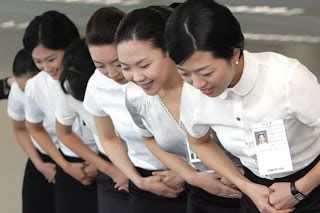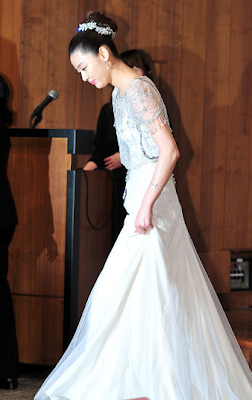Religion 
Buddhism 
Buddhism is one of the older religions in South Korea. It comes from the Mahayana branch of Buddhism, similar to China and Japan. It's influence in society has declined recently, but there are still many Korean's that practice Buddhism. Christianity
Christianity has become more and more popular in recent years in South Korea. Christianity was introduced to Korea by the Jesuits in China. Catholics spread very quickly, but were persecuted by the King who perceived it as a threat. Protestants began to enter Korea in the late 19th century. Some of the world's largest churches will be found in Korea.
Korean New Years 
There are actually two Korean New Years. This is because Koreans go by two calenders; one being the same people use in the West, and the other being the lunar calender.
It is a big national holiday in Koreal, and occurs on January 1st just like it does here. During this holiday, many relatives get together to share time together and talk. In Korea, there are some old traditions that some people will still follow. One is to visit the oldest member of the family and bow toward them to show respect and to wish them a long life. The following day on January 1st people will pay respect to ancestors by offering food and wine. This ceremony is called Jaesa. At the beginning of the ceremony, the names of the ancestors are pinned to a board. The oldest family members bows and offers the wine to the ancestors who have passed away. Then, the names are burned. Later in the day, relatives talk about old times and eat food. The traditional food usually eaten on New Years Day is Duk Gook, a type of soup. Kimchi is always present.
The other New Years Day is the Lunar New Years. It is usually around February. People wear the traditional clothes called Hanbok. It also is a day relatives may get together. People will exchange gifts, and the children will definitely be happy because they are usually given money on Lunar New Years. Sometimes the Lunar New Years and the Solar New Years are pretty common and involve similar traditions. The main idea behind it all is to wish everyone a happy new year, good luck in the new year, same as everywhere else in the world, as well as pay respect to those who have passed away.
Independence Day 
Korean Independence Day represents when Koreans declared themselves independent from Japanese rule. It is on March 1st every year, and began in 1919 when the declared themselves independent from Japanese rule. Japan had taken over Korea in 1910. For the next 9 years, Koreans would live a hard life under Japanese control. Since they declared independence, every year they proudly stand for their independence from all foreign rule.
Chuseok 
Chuseok originally known as Hangawi, is a major harvest festival and a three-day holiday in Korea celebrated on the 15th day of the 8th month of thelunar calendar. Like many other harvest festivals, it is held around the Autumn Equinox. As a celebration of the good harvest, Koreans visit their ancestral hometowns and share a feast of Korean traditional food such as songpyeon and rice wines such as sindoju and dongdongju.























